
PROJECT CONSORTIUM
COORDINATOR
PARTNERS
About the Project Consortium
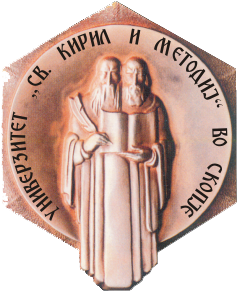
Ss. Cyril and Methodius University in Skopje (UKIM)
Ss. Cyril and Methodius University in Skopje is the first and oldest state university in the Republic of North Macedonia, established in 1949 with only three faculties conducting its main activity of tertiary level education, organising undergraduate, graduate and doctoral studies. Today, it is a community of 23 faculties, 5 scientific institutes, 4 public scientific institutions and its associate members. At the Ss. Cyril and Methodius University in Skopje there are study programs in all scientific fields –mathematical, technical-technological, medical sciences and health, biotechnical, social sciences, humanities and arts. The highest ranked and most popular university in North Macedonia, in particular, can be represented by the following organisation and structural figures: in the teaching-educational process of all faculties are included more than 28,400 students in the first and more than 1,100 students in the second cycle of studies. The third cycle – doctoral studies is realised within the School for doctoral studies at UKIM, with more than 1,000 students. Over 3,100 teaching scientific and associate, as well as administrative staff participate in the realisation of the educational and scientific process at the faculties and institutes. So far, Ss. Cyril and Methodius University in Skopje participated in more than 72 projects, out of which 16 as project coordinator, 52 as beneficiary and 4 as a third-party entity. Under the Erasmus+ programme, UKIM participated in 12 projects. Under the other relevant programmes, the following distribution is applied: – 27 projects under the FP7, – 24 projects under the H2020, – 6 under the COSME, and – 3 under the UCPM programme. Currently, the organisation takes part in project activities under various programmes such as Erasmus+, EU H2020, the NATO programme, AUF, COST, IAEA, UCPM, IPA and numerous bilateral projects.
Project Team

Mijalche Santa is an Associate Professor at the Department of E-Business and a Vice-Dean for Science and International Cooperation. His main areas of research are enterprise modeling, system analysis and design of information systems, knowledge, learning and innovation. His involvement in numerous projects gives us the necessary foundation and experience in successful project implementation. Additionally, his continuous communication and contact with international partners grants him the position of a main contact person, project coordinator etc.

Ljupco Eftimov is a Professor at the Department of Management and Vice-Dean for Academic Affairs with vast experience in managing human resources and educational management. He was awarded the prestigious Chevening Scholarship. Professionally, prof. Eftimov was holding or still holds the following functions as Head of the second cycle of studies in Strategic Human Resource Management, Member of the Management Board of the Macedonian HR Association, etc. In his authorship, related research papers are “Joining Efforts of Employers and Educational Institutions to Develop Competent Graduates” and “Designing a balanced scorecard as strategic management system for higher education institutions: A case study in Macedonia”.
Sasho Josimovski is a Professor at the Department of E-Business. He is an active coordinator and a member of several teams in the field of information technologies and electronic business. He has been Head of the Department of E-Business and a member of the Dean’s Board of the Faculty of Economics. During his work, he performed several academic visits in the USA, the Netherlands, Belgium etc. Several of his research papers include “Modern Trends of Recruitment–Introducing the Concept of Gamification” and “The Determining Factor of Brain Drain in the Republic of Macedonia and its Effects on the Economy”.

Elena Naumovska is an Associate Professor at the Department of Finance experienced both professionally and academically in the areas of banking, non-banking financial institutions and corporate and risk management. Furthermore, her professional involvement includes Education Coordinator for harmonizing banking group members and Supervisory board member, besides numerous other past activities. Her experience as both lecturer and secretary of the Council of the second cycle studies, numerous published research and project activities, is of key importance.

Martin Kiselichki is a Teaching and Research Assistant at the Department of E-Business, actively taking part in his doctoral studies in the field of Organizational and Management Sciences. Notably, he’s an author of the e-book “Marketing through social networks” which is published through the New Business Education Foundation. As his academic activity includes both extensive research and working with students, his addition to the team is crucial for project management and implementation.

Filip Peovski is a Teaching and Research Assistant at the Chair of Mathematics and Statistics with academic and research involvement in the fields of quantitative sciences, business analytics, applied economics, monetary economics and finance. As part of the initial process of preparing, conducting, and managing the formal project application, assist. Filip Peovski is involved in both management, research and partner coordination in the early phase of the application process. Furthermore, his research activities are proven to be of immense importance and fine addition to our project team through data dissemination, budgeting and provision of applied research.

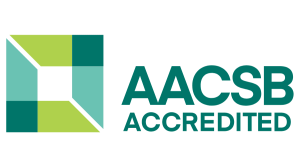

University of Zagreb (UNIZG), Faculty of Economics and Business – Zagreb (FEB)
The Faculty of Economics and Business – Zagreb was founded in 1920 and is the oldest institution of higher education in the field of economics and business economics in the Republic of Croatia, but also in the wider international environment. The Faculty of Economics and Business – Zagreb (FEB) is one of the 31 components of the University of Zagreb, which was founded in 1669, which ranks it among the oldest universities in Europe. The Faculty of Economics – Zagreb is a community of 262 professors, associate professors and associates who run study programs and participate in various research projects. In addition to the teaching staff, there are also 111 members of the non-teaching staff assigned to professional services. FEB offers study programs at all levels of university and professional study, namely: integrated undergraduate and graduate university studies, then undergraduate and graduate university study programs in English, postgraduate specialist and university doctoral study programs in the field economics and business economics and economics and global security, as well as undergraduate and specialist graduate professional studies. All study programs of the Faculty of Economics and Business – Zagreb are aligned according to the principles of the Bologna Declaration and have valid permits issued by the Ministry of Science and Education. The Faculty of Economics and Business – Zagreb is currently attended by over 8,500 students at all levels of study, and each year around 1,500 students complete their studies in various study programs.
The Faculty of Economics and Business – Zagreb is an important advisory factor in the economy of the Republic of Croatia, and its professors, to a greater or lesser extent, influence the creation of economic policy not only in Croatia, but also at the level of the European Union. The Faculty of Economics and Business – Zagreb is recognized by the largest companies in the Republic of Croatia as an important and desirable strategic partner, and it is the holder of a large number of scientific and professional projects whose content is aimed at solving contemporary economic challenges. Such an orientation enables our teachers and associates to realize their own research and advisory potential.
FEB is the holder of national accreditation, signed by the Agency for Science and Higher Education and the Ministry of Science and Education, but also of three international accreditations, EQUIS and AACSB Business accreditation at the institution level and EFMD Program Accreditation for the university study program in English Bachelor Degree in Business.
Project Team

Marina Dabić is a tenured professor of Entrepreneurship and International Business at University of Zagreb, Faculty of Economics & Business, University of Ljubljana and University of Dubrovnik. In the period of 203-2021 she is adjunct professor at the Nottingham Business School, United Kingdom. Her research areas include entrepreneurship, international business, open innovation, innovation, knowledge management, management of technology and the impact of innovation on CEE countries. During her career, she achieved success as a holder or partner in projects financed by the European Commission, such as Tempus FoSentHE, ERASMUS +, LLL Leonardo da Vinci. She is currently the holder of the work package in the OBZOR 2020 RISE Open innovation project, a partner in the Wool project, financed from Interreg structural funds, and a partner in the Erasmus project K2 VOIS. Professor Dabić is the head of accreditation at the Faculty of Economics, University of Zagreb and is a mentor for the AACSB accreditation of AEI Diojon, France, and was a member of more than 10 accreditation visits for EFMD accreditation from 2013 until today. Since 2017, he has been a regular reviewer for Horizon 2020 projects. She is a reviewer for the European Science Foundation and Research Foundation Flanders (FWO). Member of editorial boards in more than 30 academic journals, co-editor in Elsevier’s journals Technological Forecasting and Social Change and Technology in Society, and chapter editor in IEEE – Transactions on Engineering Management. Under her mentorship, 6 doctoral dissertations were defended. She was a member of the committee for doctoral dissertations at the University of Portland, USA; Leicester University, University of Gloucestershire, Great Britain; Polytechnic Milan, Italy; University of South Australia, Australia; Lappeenranta University, Finland; Compultense University, Madrid, Spain; Faculty of Mechanical Engineering and Faculty of Economics, University of Zagreb. Continuously, she is ranked as the most cited Croatian scientist in the field of economics and business economics, having published more than 170 articles in indexed journals, 12 book chapters and 8 books. Currently, her h-index in database Web of Science of 31 with a total of 2812 citation in 164 publications.
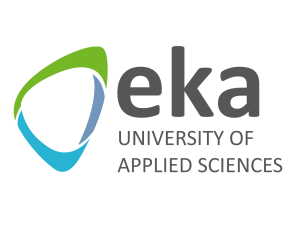
EKA University of Applied Sciences (EKA)
EKA University of Applied Sciences (Ekonomikas un kulturas augstskola – EKA) is a private higher education institution that provides a formal education programs for learners in the form of in-class and distance learning. It was founded in 1998. Study courses are delivered in Latvian and English. EKA implements study programmes at 3 levels: college level, Bachelor level and Master level. Study programmes are implemented within five study fields: Economics, Management, Law, Information Technologies, and Arts. As of 2023, EKA has approximately 1100 students , approximately 25% of them are foreign students from Uzbekistan, Kazakhstan, Nigeria, India and other countries. EKA has ERASMUS cooperation agreements with 67 higher educational institutions from 18 European countries, including EU15 countries, new member states, Macedonia and Turkey. EKA has a large experience in providing e-learning, using modern e-learning tools, such as Moodle, AdobeConnect and Big Blue button. EKA staff is experienced in preparing e-courses and conducting webinars. EKA has a long-term experience in digital education. E-studies provided by EKA is not only passive usage of Moodle platform as a digital warehouse, but also real-time online lectures. EKA e-environment for study needs contains: MyE-KA mobile application, Moodle and BigBlue Button (video conference system, which is used to stream (and record) video lectures), E-Nexus (academic staff database and research work repository, students’ information database).
EKA has a good experience in the realization of the international projects within Erasmus+ program. Currently, two projects within the programme Capacity Building for Higher Education are being implemented: 1) „Accelerating ICT students′ start-up development competence via interdisciplinary modular courses in the HEI curricula” (2019-2022), 2) „Advancing circular economy in partner countries by development and implementation of Master programme “Waste management” (2021-2024). EKA has also Erasmus+ KA2 project „Development of a virtual learning space as a tool for developing students′ critical thinking, communication, collaboration and creativity skills in the context of COVID19” (2021-2024), and a project within the framework of the EIT HEI Initiative – “Building Forward Better’ ecosystems – Harnessing the power of networked communities to scale-up and accelerate the impact of entrepreneurial universities – Network IQ Alliance” (2022-2024).
Project Team

Jelena Titko is a Professor at the EKA University of applied Sciences (Latvia); she also holds an administrative position of a Vice-Rector for Science and International Cooperation. She is an expert in the fields of Education and Economics and Entrepreneurship of the Latvian Council of Science; an author of more than 60 scientific papers in the field of economics, business, management and education; an expert representing Latvia in the Eurydice study “Digital Education at School in Europe”. She is an Editor-in-Chief of the journal “Economics and Culture” and a member of a scientific board of the journal “Business, Management and Education”.

Edgars Cerkovskis is a Lecturer at the EKA University of applied Sciences (Latvia); he also a director of the Master study programme “Circular economy and social entrepreneurship”. He has created and runs more than 10 innovative study courses in several Latvian universities – digital economy, digital technologies, artificial intelligence, digital tools and their applications and many more. He is the author of several digital tools, such as the Virtual Economy Cabinet and several simulation online games for students. The digital materials, programs and methods developed by Cerkovskis are still used in the largest Latvian learning centers – Riga Distance Learning Secondary School, European Distance Learning Center, Latvian Distance Learning Professional Center and European Distance Learning Secondary School. One of the most important works is the development and approbation of the Education Quality Index in Latvian schools, as well as the introduction of Virtual Reality in 3 Latvian schools.
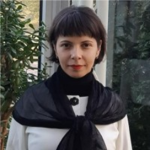
Kristine Uzule is an Associate Professor and researcher at the EKA University of Applied Sciences. She is an expert of the Latvian Council of Science in two fields – educational sciences, economics and entrepreneurship. Her areas of specialization include entrepreneurship and psychology. She has participated in various international scientific projects on competences and digitalization. Her publications and conference presentations themes range from digitalization to entrepreneurship.
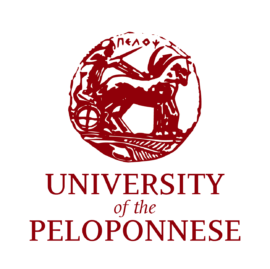
The University of the Peloponnese is a modern, multidisciplinary, regional and multi-campus university. It was established in 2000, it accepted its first students in 2002. The university is developed in the five Capitals of Prefectures of the Peloponnese Region (Tripolis, Corinth, Nafplion, Sparta, Kalamata) and Patra.The aim of the establishment and operation of the University of the Peloponnese is the creative contribution to the development of higher education in the Greek region, with high quality standards corresponding to the content of studies, research and teaching in the requirements of a modern University with national, European and international scope. It comprises of 9 Schools and 22 Departments and offers studies in all cycles of learning: undergraduate, postgraduate and Doctoral as well as Life Long Learning. The University of the Peloponnese has more than 20.000 students (1st, 2nd and 3rd Cycle of Studies). Quality Assurance in Higher Education is the main objective of the European Higher Education Area. The basic principle of quality assurance is the high sense of responsibility of each institution towards students and society to provide high quality education. The Quality Assurance Unit of the University of the Peloponnese is the central coordinating body of the University’s quality assurance and evaluation procedures. The University of the Peloponnese has 24 Postgraduate Programs (6 in English language and 8 in collaboration with Greek and foreign universities); 350 members of Academic Staff and 165 members of Administrative Staff; 22.420 undergraduate students, 1.706 postgraduate students and 527 doctoral students; Collaboration with 8 national and 13 foreign Universities; Collaboration with 30 national and 3 international organizations (Ministries, Regions, Municipalities, Chambers, Institutes, Research centres, Charity organizations, etc.).
Project Team

Dimitrios Petropoulos is Associate Professor at the University of the Peloponnese, of Agricultural Economics discipline. He is the Dean of the School of Agriculture and Food of the University of Peloponnese. He has participated in research projects in the fields: Analysis of the structural characteristics of the agricultural sector, Assessment of policies to strengthen the agricultural sector, The impact of EU enlargement in agriculture, Assessment of the mobility of agricultural land and the factors that create it and Agricultural policy, impact on the structure and economy, the use of natural resources and environmental quality. He is president of the Organizing and Scientific Committee of the International Conference for Development and Economic. He is also a member in the Scientific Society: Greek Rural Economy Society (ETAGRO).

Nikolaos Apostolopoulos is an Assistant Professor in European Policies in Sustainability, Development and Entrepreneurship at the University of Peloponnese. He also acts as a Scientific Advisor at the Labour Institute of the General Confederation of Greek Employees (INE-GSEE) and he participates at the European Trade Unions Institute. He has participated in more than 10 funding initiatives of the EU Structural Funds. Among these initiatives, he was co-author of a report on the impact of the Europe 2020 strategy on the Greek economy funded by the EU Structural Funds. Moreover, he is a key researcher of a Jean Monnet Centre of Excellence on Governance at the University of Peloponnese. He has published numerous articles in leading academic journals. He is co-editor of 3 edited volumes and co-author of 4 books. Prof. Athanasios Papageorgiou focuses his teaching in Agricultural Economics and Agricultural Products Marketing and Food at University of the Peloponnese. He has participated in research projects in the fields: Globalization and Marketing of Products and Food, Consumer options and European Policy and Sustainable Development – Local Products. He is Department Coordinator of European Programs.


